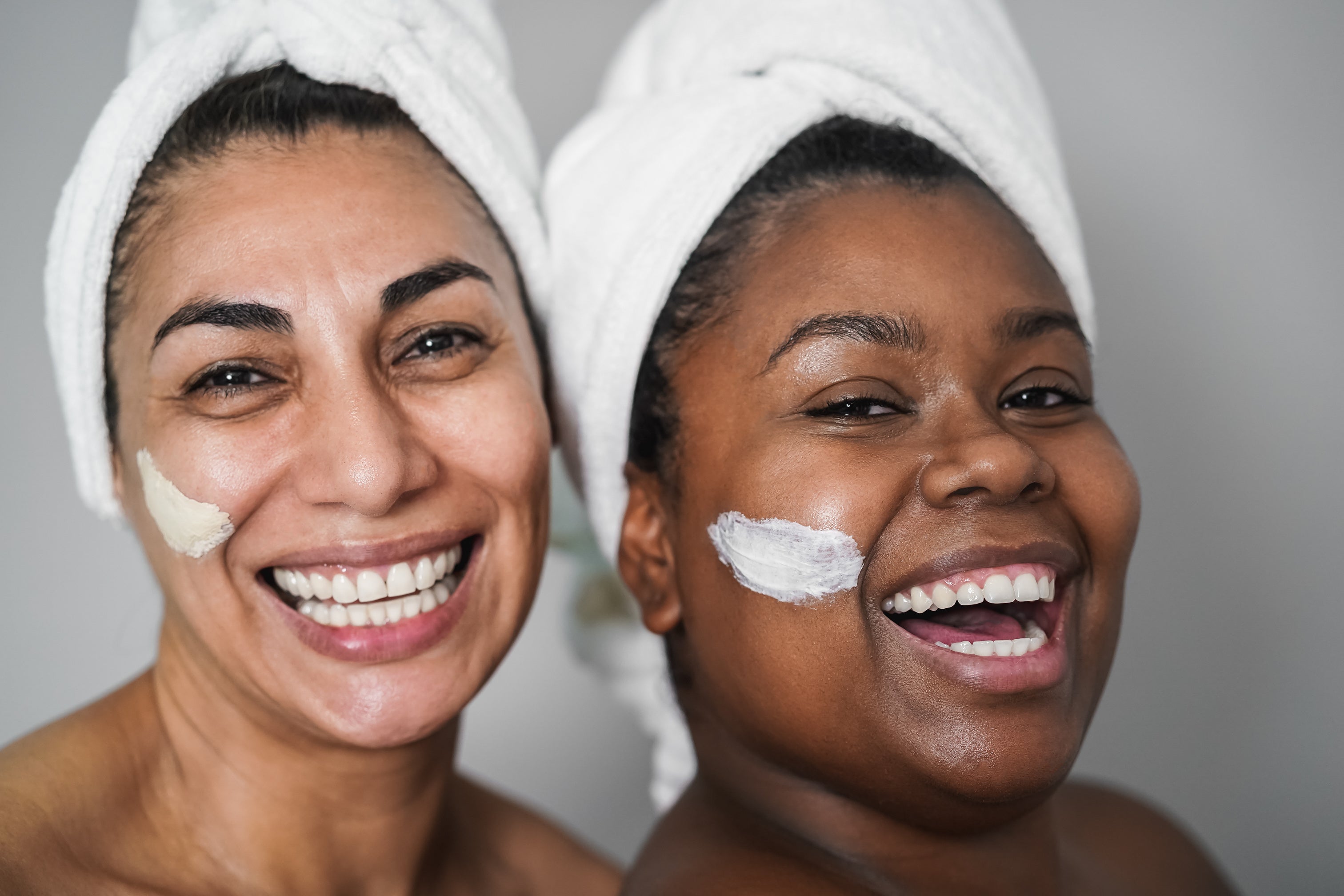If you love skincare enough to be reading a skincare blog, you’ve probably at least heard of these two critical skin components: collagen and elastin. In fact, it seems like there’s practically always some sort of new trend popping up every other week when it comes to these two.
While some of these things are fads and unsupported by science (and so the trends should be treaded lightly), the obsession in and of itself isn’t unfounded. So that brings us to the question, what is the function of collagen and elastin? In this post, we’ll discuss the benefits of collagen and elastin, and tackle some other common questions.
What Is Collagen & What Does It Do?
Collagen is one of the most plentiful proteins found in the human body. This little triple-wound helix string of nucleic acids (namely hydroxyproline, glycine, and proline) is a key structural component of the skin一 the largest organ in the body一 but is also found in other connective tissues. There are many different types of collagen, though they all play similar roles in the skin, varying slightly to include immune response and helping cells to communicate with each other. However, the main function of collagen is to provide rigid support for the otherwise flimsy and gelatinous tissue that is your skin.
Benefits of Collagen
Collagen is often added to skincare products and some oral supplements. While it may seem odd to ingest collagen, it’s actually a very important way to refuel your skin with the structural proteins it needs. Using collagen creams and taking collagen orally can have the following benefits for your health:
Can My Body Make Collagen?
Yes, our bodies absolutely manufacture collagen on their own! However, in some people, this happens at a much slower rate. This is usually the case in people over the age of 30 and those who have been exposed to too much damaging UV radiation.
As we age, our bodies’ natural collagen production starts to decline (usually starting somewhere around 30), and existing collagen starts degrade. This is part of what causes wrinkles, fine lines, and crepey skin as we get older. Excessive UV exposure can also accelerate this process.
So if you are a younger person who protects their skin from the sun properly, you shouldn’t need to take collagen supplements一 but it won’t hurt. In fact, we can also benefit great from a little extra collagen, even if only as a preventative measure.
What Is Elastin and What Does It Do?
Next up is collagen’s best friend, elastin. Elastin, like collagen, is also a structural protein found in the skin and connective tissue of the body. Elastin is also naturally produced by the body, and its production likewise decreases as we age and are exposed to the sun’s harmful UV rays. This little protein is also built with water-fearing (hydrophobic) amino acids like proline and glycine.
Elastin’s role in the skin is simple: allow the skin to “bounce back” and resume its original form when poked, pinched, or stretched. When the elastin content in the skin decreases, wrinkles and sagging can occur. The skin may also be more prone to damage and stretch marks if it is lacking elastin. Furthermore, elastin production slows down much sooner (mid-20s) than collagen production does (30s).
Benefits of Elastin
Like with collagen, you will see many products一 like oral supplements and topical creams一 that include elastin as an ingredient. These supplements and creams aren’t a bad idea, but it’s always best to meet your body where it needs your help; often that means getting more healthy, vitamin-rich fruits and vegetables into your diet. The benefits of taking or using elastin products, combined with supporting your skin naturally are:
- Tighter skin that recoils better
- Fewer sagging and wrinkling spots
Collagen vs Elastin
As we’ve discussed, while they do work together like the dynamic duo they are, collagen and elastin are a bit different. Both play important roles in maintaining your skin’s structure and elasticity, but do so in different ways.
Regardless, an important thing to keep in mind is that both collagen and elastin prevalence will reduce over time, leading to natural aging. Some people may physically age faster, due to overexposure to the sun, while others just have a genetic predisposition to premature aging.
Reliable Skincare Products for Skin Health
If you’re looking for trustworthy skincare products to boost your skin’s natural collagen and elastin, take a look at our Advanced Firming Cream, Stretch Mark Cream, and Scar Esthetique Silicone Scar Cream. All three of these products leverage polypeptides and botanicals to stimulate collagen and elastin growth in your skin. The first two products also use ceramides to intensify this effect. Plus, you can use all of our products knowing that care and passion went into every batch.





















Leave a comment